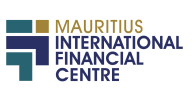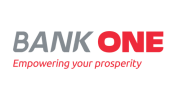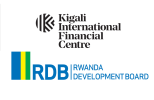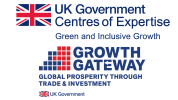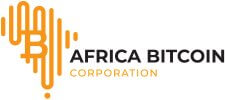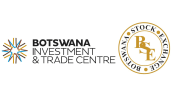Challenges and Opportunities for Economic Development
Economic development is a multifaceted area of focus that concerns national policymakers, international organizations, and local leaders alike. It involves the concerted efforts of various stakeholders to improve the economic well-being and quality of life for a community by creating and retaining jobs, and supporting or growing incomes and the tax base.
In this article, we will delve into the challenges and opportunities for economic development, with a particular focus on economic diversification and job creation, and we’ll take a closer look at economic development in Nigeria as a case study.
Understanding Economic Development
Before we jump into the challenges and opportunities, it’s crucial to have a clear understanding of what economic development entails. It’s a process that influences growth and restructuring of an economy to enhance the economic well-being of a community. This often involves initiatives that span from infrastructure development, fostering entrepreneurship, improving education and health, to creating an environment conducive to sustainable growth.
Challenges in Economic Development
by Karen Green (https://unsplash.com/@elegant_50_style)
Dependency on a Single Sector
Many economies, especially those in developing countries, rely heavily on a single sector, such as oil and gas, mining, or agriculture. This dependency makes them vulnerable to market fluctuations, which can have severe consequences for their economic stability. Diversification is crucial to mitigate this risk.
Lack of Infrastructure
Inadequate infrastructure is a significant barrier to economic development. Poor transportation networks, unreliable power supply, and lack of digital connectivity can impede business operations, discourage investment, and limit access to markets.
Insufficient Education and Skills Development
Economic growth is closely tied to the workforce’s skill level. Countries that lack access to quality education and vocational training struggle to develop a labor force that can meet the demands of a modern, diversified economy.
Political Instability and Corruption
Political uncertainty and corruption can stifle economic development by deterring foreign investment and misallocating resources that could otherwise be used to support growth initiatives.
Opportunities for Economic Development
While challenges exist, there are also numerous opportunities to foster economic development.
Investment in Education and Training
Investing in education creates a skilled workforce that can adapt to the needs of a changing economy. Emphasis on STEM subjects (science, technology, engineering, and mathematics), as well as vocational training, can prepare individuals for a variety of industries.
Leveraging Technology
The adoption of new technologies can drive efficiency and productivity, leading to economic growth. For instance, the use of mobile banking in some African countries has significantly improved financial inclusion and provided a platform for innovative business models.
Public-Private Partnerships
Collaboration between the public sector and private companies can lead to infrastructure development and job creation. Public-private partnerships can harness the strengths of both sectors to achieve economic development goals.
Sustainable Practices
Adopting sustainable practices can attract investment and open up new markets. Companies and countries that prioritize sustainability can set themselves apart in an increasingly environmentally conscious global economy.
Economic Development in Nigeria
by Ales Krivec (https://unsplash.com/@aleskrivec)
Nigeria, Africa’s largest economy, presents a unique case in terms of economic development. The country faces several challenges but also possesses immense potential.
Challenges Facing Nigeria’s Economy
Over-reliance on Oil
Nigeria’s economy is heavily reliant on oil, which accounts for a substantial portion of government revenue and export earnings. This dependence has made the country vulnerable to oil price volatility.
Infrastructure Deficits
Despite its wealth in natural resources, Nigeria suffers from significant infrastructure deficits, particularly in power supply, transportation, and healthcare, which hamper economic growth.
Unemployment and Underemployment
Nigeria has a high rate of unemployment and underemployment, especially among its youth. Job creation is a pressing need to harness the potential of its growing population.
Opportunities for Nigeria’s Economic Development
Economic Diversification
There is a push for economic diversification in Nigeria. Sectors such as agriculture, manufacturing, and services hold potential for expansion and can reduce the country’s dependence on oil.
Entrepreneurial Spirit
Nigeria has a strong entrepreneurial culture, with many young Nigerians starting businesses in tech, agriculture, and other sectors. Supporting these entrepreneurs can lead to job creation and innovation.
Demographic Dividend
Nigeria’s large and youthful population can be an asset if properly harnessed. Investing in education and health can create a productive workforce that can drive economic development.
Economic Diversification and Job Creation
One of the key strategies for sustainable economic development is economic diversification. By broadening the range of economic activities, a country can reduce its vulnerability to external shocks and create more stable growth.
Role of SMEs in Job Creation
Small and medium-sized enterprises (SMEs) are often the backbone of diversified economies. They are significant contributors to job creation and can be more agile in adapting to market changes and adopting innovative practices.
The Importance of Innovation
Innovation drives competitiveness and economic growth. Economies that foster a culture of innovation can create new industries, improve productivity, and sustain long-term development.
Paths Forward for Economic Development
To overcome challenges and seize opportunities, there are several paths forward for countries seeking economic development.
Policy Reforms
Governments need to implement policy reforms that create a favorable business environment, reduce red tape, and encourage investment.
Investment in Human Capital
Investing in the education and health of the population is essential for developing the human capital necessary for economic growth.
Focus on Sustainable Development
Economic development should be pursued in a way that is environmentally sustainable and socially inclusive to ensure long-term success.
International Collaboration
Countries can benefit from international collaboration, including trade agreements, foreign direct investment, and knowledge sharing, to boost their economic development efforts.
Conclusion
Economic development presents both challenges and opportunities. By addressing the obstacles head-on and leveraging the available opportunities, countries can set themselves on a path to sustainable and inclusive growth. For nations like Nigeria, the journey towards economic diversification and job creation is complex but attainable with the right mix of policies, investments, and collaborations.
by Traxer (https://unsplash.com/@traxer)







